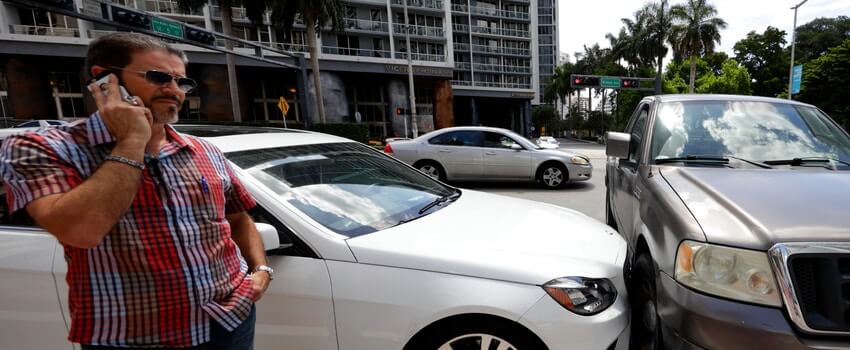Getting into a car accident is always stressful. If it was a relatively minor one, you still worry about possible medical issues that may pop up later and the cost of cosmetic repairs to your car. If it was a more serious accident, the anxiety is increased as you wonder how to deal with injuries, extensive motor vehicle repairs, time missed from work, and — in a worst-case scenario — you may even have to deal with the excruciating aftermath of the wrongful death of a loved one. Yet, because we live in a litigious society, sometimes things aren’t clear-cut. You will have the burden to prove that someone else was negligent and you have to be careful that anything you say or do is not later used against you. So, what can you do after a car accident that wasn’t your fault?
A Dos and Don’ts List for Drivers
1. Take pictures
Take pictures of everything — the damage to your car, damage to the other driver’s car, the angle of the motor vehicles, the other car’s license plate, the other driver’s driver’s license, the street, and surrounding businesses and homes that may have surveillance video. In addition, if there were any witnesses to the accident, get their full names and contact information. In cases like a T-bone accident, it is important to have evidence that can prove who had the right of way.
2. Get out of the stream of traffic
If at all possible, move your car so that it is not obstructing traffic. If the car won’t start and you’re physically able to do so, call a towing company so that your car does not continue to construct the regular flow of traffic. The other driver has the responsibility of doing so as well. This is required by Florida Statute section 316.61.
3. Call the police
Florida law requires filling out a police report form under certain circumstances. These include any accident that resulted in the death or personal injury of anyone involved. If any party to the accident or any of their passengers complains about pain, fill out a report. This is also required if the accident rendered a motor vehicle inoperable, involved a commercial motor vehicle, or if someone was driving under the influence of drugs or alcohol.
4. Don’t offer too much information
Even if the other driver caused the accident, their insurance company will hold on to any bit of information that may limit their own client’s liability. This is because Florida is a comparative negligence jurisdiction. What this means is that if the other driver is found to have been 60% at fault, and you were 40% at fault, you can only recover 60% of your damages. So, absolutely anything you say that could be construed as partial fault (e.g. “I was on my cell phone/arguing with my kids in the backseat/changing the radio station”, etc…) could later be used against you.
5. Go to the doctor
When you’re in a highly stressed situation — such as a car accident — the adrenal glands in your body release adrenaline. This hormone causes you to become more alert, react on instinct, and numb you to pain. Therefore, you may be injured and not even know it. This is a problem for several reasons. Waiting to obtain medical care may worsen the injury. As a result, the cost of medical care may increase. Also, Florida Statues section 627.736 requires that for you to be able to seek personal injury protection through your own insurance company, you have to file your claim within 14 days from the date of the accident.
6. Do not speak with the other driver’s insurance company
If you’re not represented by an attorney and the other driver has insurance, it’s possible that an agent from their insurance company may call you to try to settle the case. It doesn’t matter how friendly and/or understanding they may sound, do not agree to talk with them about the accident. Their job is to limit their insured’s liability as much as possible. And in the same way, anything you say at the accident scene may later be used against you, anything you mention during a conversation with the insurance agent could be interpreted as admitting partial fault.
7. Speak with an experienced personal injury attorney
Speaking with an experienced personal injury attorney will ensure that all of your bases are covered — getting compensated for medical injuries, car repairs, car rental, time missed from work, future medical injuries that are a direct result from the accident, loss of future wages if you’re now disabled, pain and suffering, loss of consortium, and/or wrongful death. You don’t know what you don’t know, and an attorney can help ensure you get the maximum recovery possible.
If you got into a car accident and were not at fault, let us help you.
Every car accident is different. There are many factors that determine the drivers’ level of liability. Let’s discuss your case, we’ll look for ways to have all of your expenses covered — for present and future treatment — as long as they relate to the accident.
At Carey Leisure Carney, we have more than three decades of combined experience successfully representing clients involved in car accidents. All of our attorneys are accessible and Board Certified in civil trial law. Contact us online or call us at (727) 799-3900 to schedule a free consultation.
